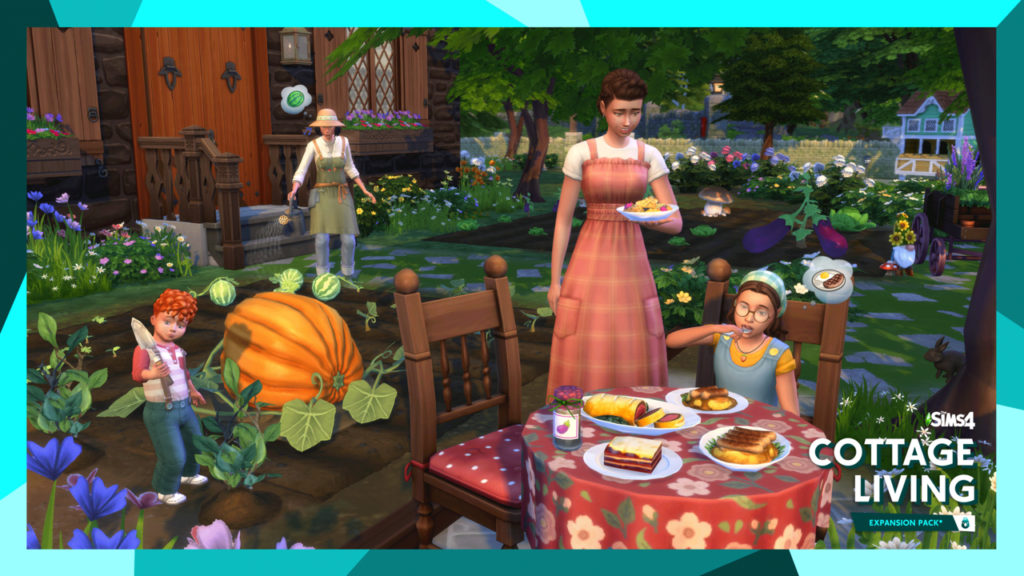
Provided by EA
The Sims 4 Cottage Living: Putting Labor Out to Pasture
The Sims, as a franchise, has always offered freedom.
Freedom to be anyone, to be anything. And while players can pursue almost any path–up to and including becoming a master vampire, really–The Sims feels like a way to (virtually) live out the traditional “American Dream.” Suburban living, financial stability, an eight-hour workday with guaranteed days off, and maybe a little family to round it all out.
It’s just that the American Dream is a fantasy. As inaccessible and fantastical as the idea of becoming a vampire in the first place.
Since The Sims was first released in 2000, the series has captured the minds of millions of people the world over. And why not? The Sims offers a world where almost anything is possible. Where home-ownership is assumed, where upward mobility is possible, where jobs are abundant and well-paying, and where hard work actually does pay off.
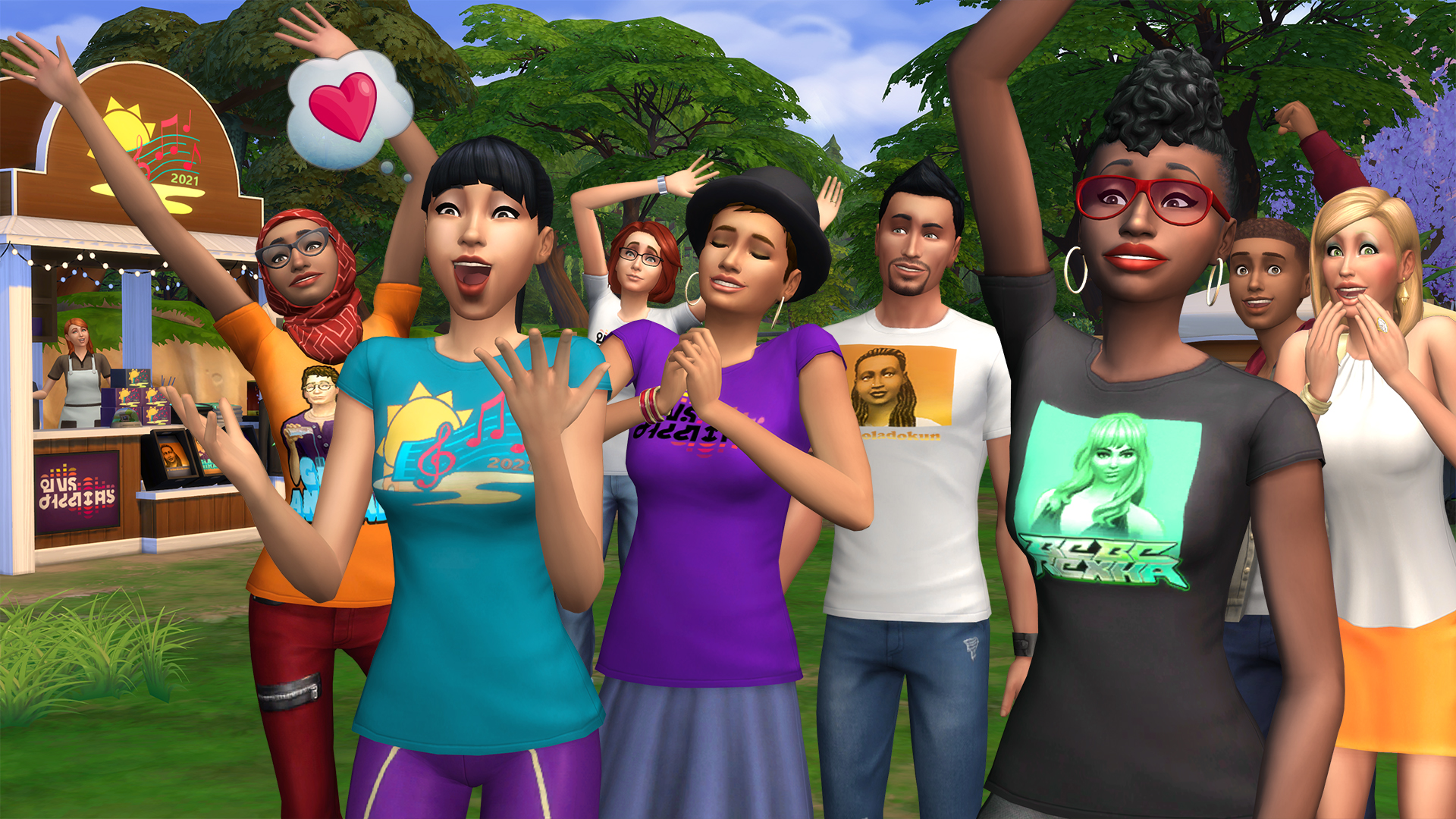
Maxis couldn’t have foreseen the way the world would change–couldn’t have known that in only a decade or so, home-ownership would feel as fantastical as becoming an astronaut. That this virtual dollhouse that gamifies the mundane activities of everyday life would be more fantasy than not. A reminder of a time when the future looked brighter.
Unfortunately, that promise of a better future never came to pass.
Priorities and desires have dramatically shifted since 2000, especially during the COVID-19 pandemic. The idea of a white picket fence, a two-story house, promotions, being a team-player in whatever corporate structure you’re embroiled in… it’s just not that appealing anymore.
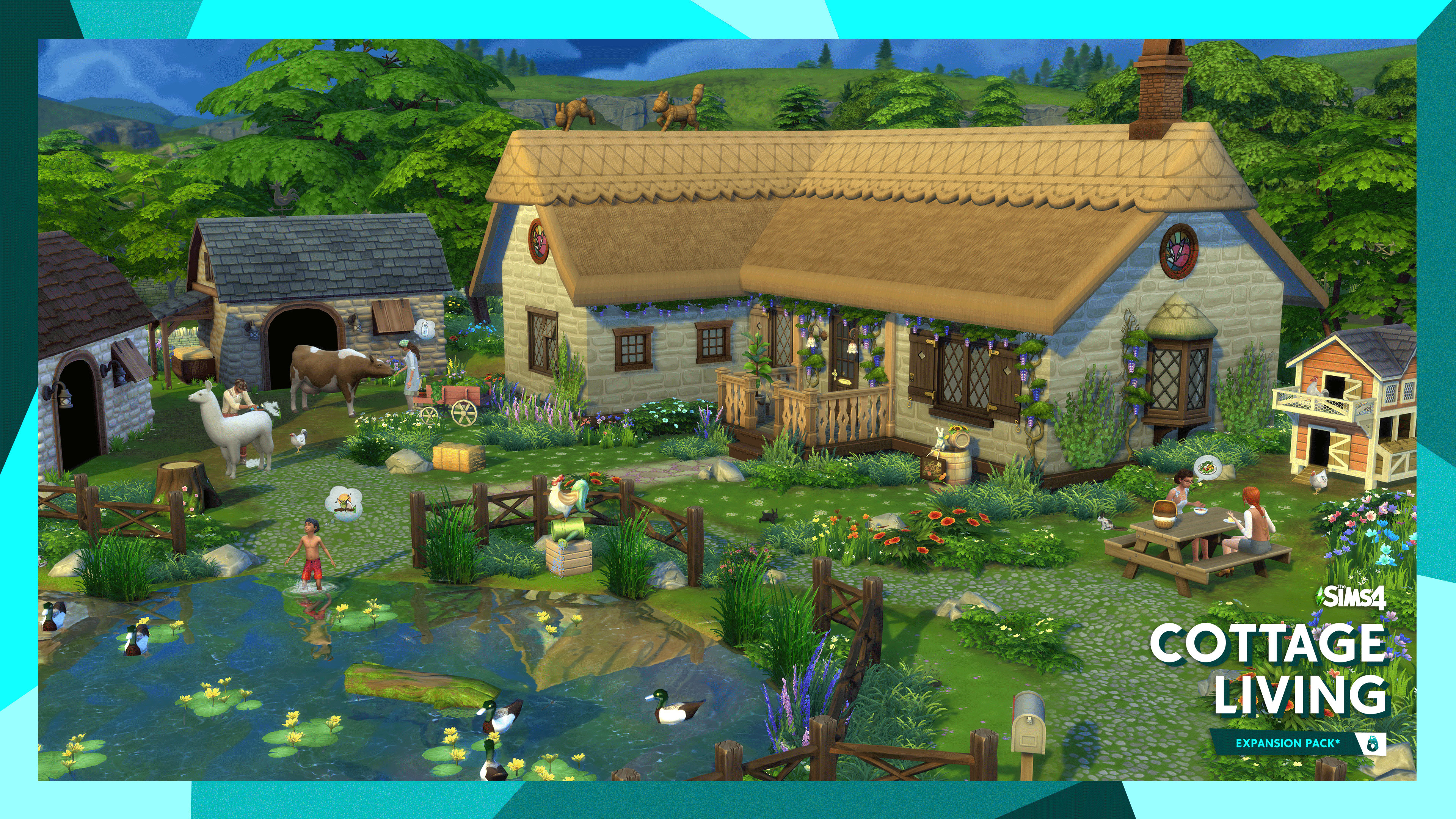
Enter The Sims: Cottage Living, an expansion to The Sims 4 that dropped in June 2021. What it offered couldn’t be more perfectly timed if it tried.
While your Sims always could garden in The Sims 4, it’s never been the main thrust of gameplay. If you wanted your sim to have a garden where they could grow fresh food, you could, but it wasn’t a particularly robust mechanic. Mostly, it was a way to get rare plants like the “Death Flower” to haggle with the Grim Reaper when he came calling. Cottage Life, in contrast, makes cultivating plants and farming its core appeal, its raison d’etre.
It was precisely what people wanted to experience in real life, just virtually.
The modern dream isn’t a big house, a fancy desk job, or a cool car. No, this new dream is digging your hands into some soil, planting a tiny seed, then helping it grow. The new dream is a small home so wholly your own, away from the bustle of city life, the isolation of the suburbs, where you make things, where you don’t feel like a cog in the machine. A dream for a more rural existence that rewards hard-working hands with tangible rewards. It’s the dream of simple living. Being self-sufficient.
Having your labor be meaningful, and more importantly, having it be yours. Making your labour a benefit to the community, a tie to it. You’re not just growing mushrooms; you’re growing mushrooms to give to the barkeeper, who may, in turn, give you a hand-made meal. You’re not just collecting wool; you’re collecting wool for the nicer of the two Crumplebottoms, who gives you a cute new pattern for your cross-stitching. It’s a pleasant world where your labor doesn’t just mean something to you; it means something to everyone.
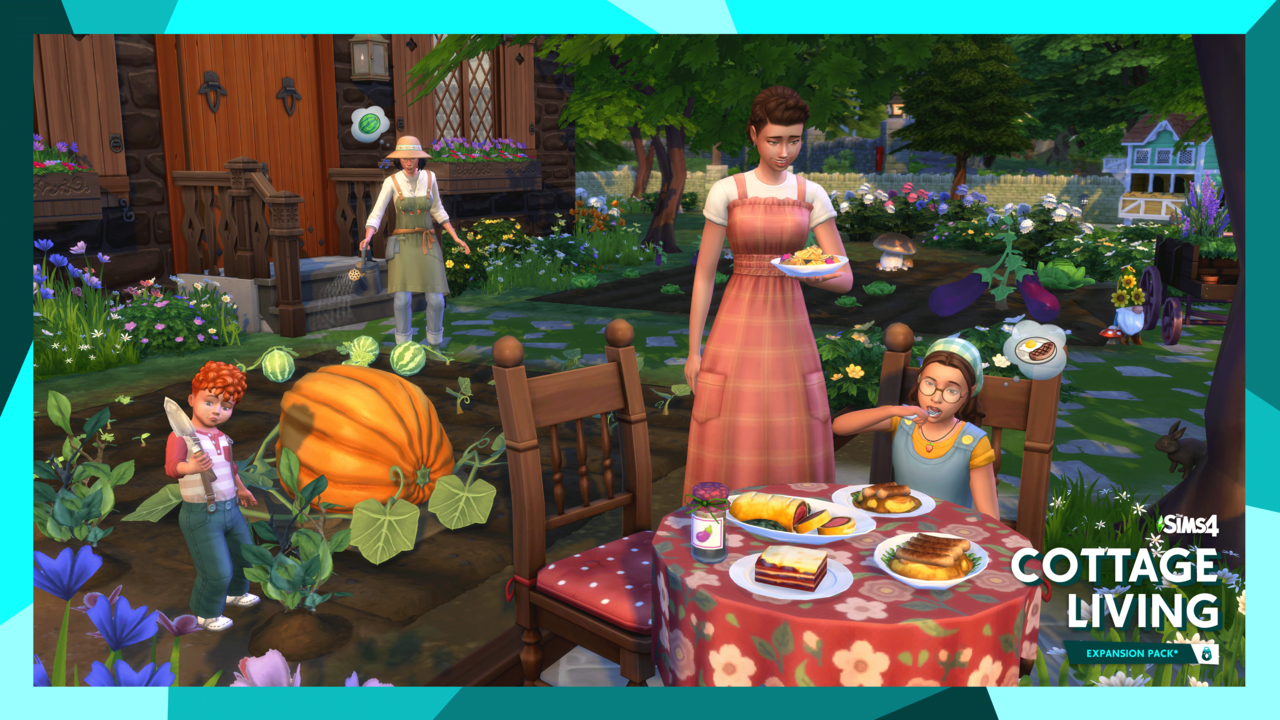
And it’s a good dream. It really, really is. Cottage Life lets people experience a grounded, simple life–the kind that people think about when every pressure of modern existence gets to be too much. They get to live their ideal lives and imagine a world where they, too, can escape the hovering presence of capitalism. Where they, too, can be self-sufficient in a way that they never could in real life.
It’s just that, like the rest of The Sims, it is just a dream.
Rural living, and even growing food for just yourself, is a hard process that will leave your hands constantly calloused and dry. It’s your back aching and sweating under the hot sun, filtered through the hotter-still screen of the greenhouse, relief a vague and distant comfort. It’s dirt flying in your eyes. It’s seeing the greenery of weeds behind your lids, imprinted in your brain like a watermark. It’s a constant worry about whether the crop will bloom under your care or fail despite it.
I work on a private farm. Not only that, I grew up in a very rural area. And, because of COVID, I’m back there again.
So I know these things first-hand.
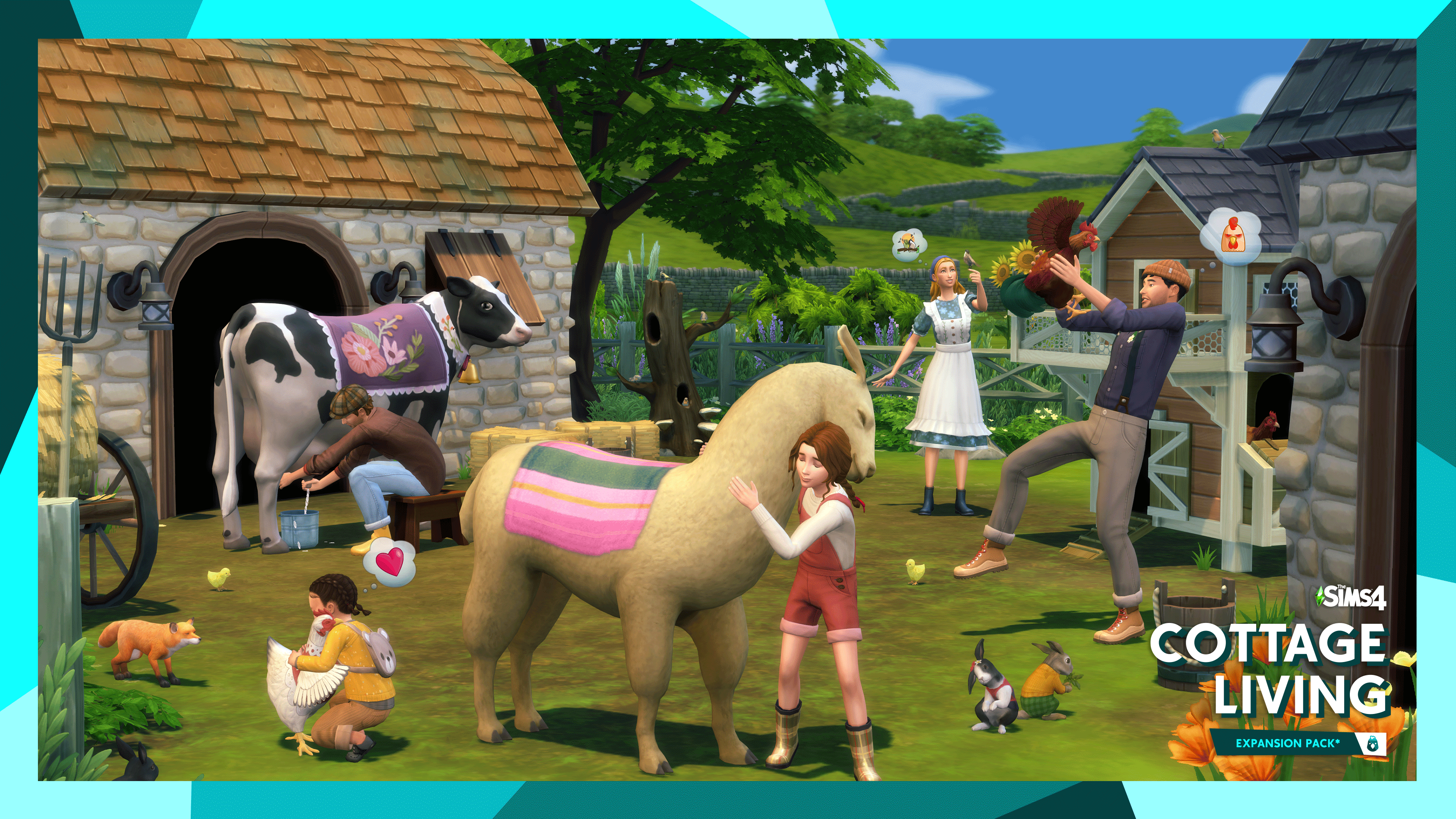
The thing about Cottage Life is that it lets you have the fantasy version of rural existence. You get to live in a secluded spot, growing crops, raising cows and such, but you still have access to the amenities of modern life. Sims can order a pizza or faux-Doordash for delivery, a thing I can barely even fathom. Their wifi always works. They don’t deal with the loneliness of living far from everything and everyone. No worrying about whether enough firewood was cut in the summer to get through winter. No worrying about bears trying to break in through open windows.
It’s rural living, made easy. Made accessible.
And you know what?
I, too, still crave that simple life. Even though I know the realities of it. Even though I know that it’s just an idealized dream, the kind The Sims has always played with. I want to believe in it anyway. I want to have that quiet existence in a cute stone house that gets drafty with the wind. I want to grow things for myself. I want the dirt on my hands to mean something to me. The labor to feel worthwhile.

Cottage Life offers everyone an escape. It’s not like most of us can go anywhere anyway, so the idea of a cute little town filled with a close-knit community that welcomes outsiders, with a tiny garden to help things grow, well, the draw is overwhelming. It’s a respite from modernity, from the hard labor we all do every day. From all the everyday pressures we have to deal with just to exist in the world–not even to properly live. And it just doesn’t matter if your pressures come from a life closer to that cottagecore ideal than most. We all just want peace, simplicity, and a place that values us and our work. That’s what Cottage Life gives us.
It’s just a small glimpse into a world where our labor isn’t just a means to an end, a way to get paid. A place that isn’t motivated by finances, by the precarious idea of “success” that capitalism implanted into our brains a long time ago. It’s labor we want to do, labor that fulfils us, motivates us, literally feeds us, and, maybe most importantly, helps everyone around us too.





